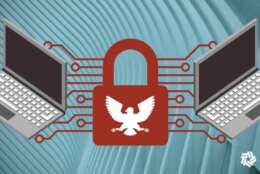Cybersecurity executive order
-
There’s something wrong with cybersecurity in 2021, and it has to do with the way organizations are approaching protecting their networks. According to Helen Patton, Advisory Chief Information Security Officer for Duo Security, organizations need to be more skeptical when it comes to accessing networks, a concept called zero trust.
September 17, 2021 -
CISA wants agencies to be aware of the cybersecurity services it offers to help them meet the goals of the newly mandated security architecture.
September 10, 2021 -
Chris DeRusha, the federal chief information security officer, said comments on the administration’s new draft zero trust strategy will ensure agencies succeed in improving cybersecurity.
September 09, 2021 -
With the recent cybersecurity executive order and the critical infrastructure control systems memo, President Joe Biden’s administration is making cybersecurity a top priority. Federal News Network sat down with Jason Payne, chief technology officer for Microsoft Federal, and Steve Faehl, chief technology officer of security for Microsoft Federal, to dig deeper into these recent moves, what makes them important and how federal agencies can partner with industry to achieve their goals.
September 03, 2021 -
Section 4 in the cybersecurity executive order (EO) is, in many ways, the most prescriptive of the entire EO, tackling head-on how to get vendors to improve the security of their products.
September 01, 2021 -
From moving to the cloud to reskilling the IT workforce, the Office of Personnel Management's new chief information officer said he's drawing on a tried and true modernization playbook.
August 31, 2021 -
The Office of Management and Budget issued a new memo outlining four maturity levels for cyber event logging.
August 27, 2021 -
For some perspective, Federal Drive with Tom Temin spoke with Chris Painter, the former State Department cyber diplomat, now president of the Global Forum on Cyber Expertise foundation.
August 27, 2021 -
The recent cybersecurity executive order looks to improve threat information sharing between the private and public sectors.
August 26, 2021 -
President Joe Biden’s recent cybersecurity executive order sets several rapid-paced deadlines for agencies to work toward adopting a zero trust posture in order to generally harden the security of the federal government. But that doesn’t mean agencies have to accomplish this on their own.
August 26, 2021 -
The National Institute of Standards and Technology said it isn't interested in establishing new testing or compliance regimes for software companies to conform to in implementing the president's new cybersecurity executive order.
August 19, 2021 -
The Office of Management and Budget is giving them 12 months to implement the critical software protections outlined by the National Institute of Standards and Technology in July.
August 10, 2021 -
Biden administration eyes mandates under new effort to improve critical infrastructure cybersecurity
The administration will develop performance goals for critical infrastructure cybersecurity as part of an effort emphasizing voluntary collaboration, but current and former officials see the potential for federal mandates amid a concerning rash of cyber attacks.
July 28, 2021 -
Industry is concerned about an initiative under President Biden's executive order that could lead to requirements for a "software bill of materials."
June 29, 2021 -
President Joe Biden’s recent cybersecurity executive order (EO) was met with a great deal of anticipation and acclaim from both the public and private sectors. While the EO only directly applies to government agencies and their suppliers, it’s likely that it will become a guiding factor across industry at large. In fact, a great deal of vendors who work with the federal government are already following many of these practices, both because their capabilities can help agencies reach their goals and for the sake of good cyber hygiene itself.
June 18, 2021














